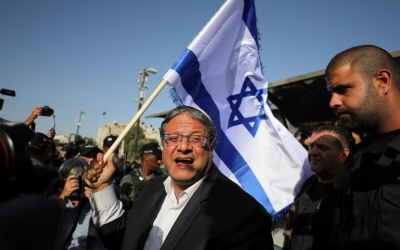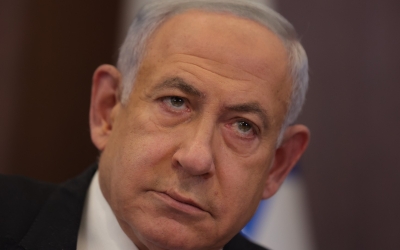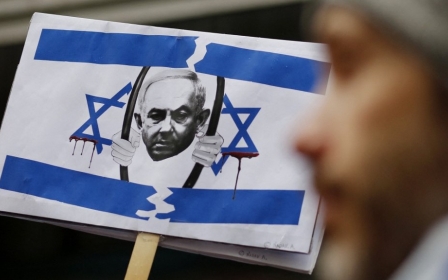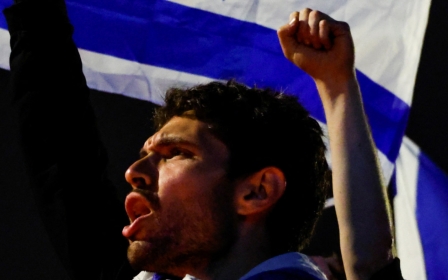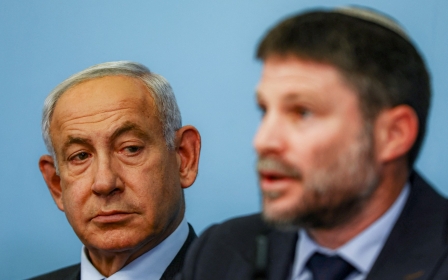Israel approves 'national guard' sought by far-right security minister
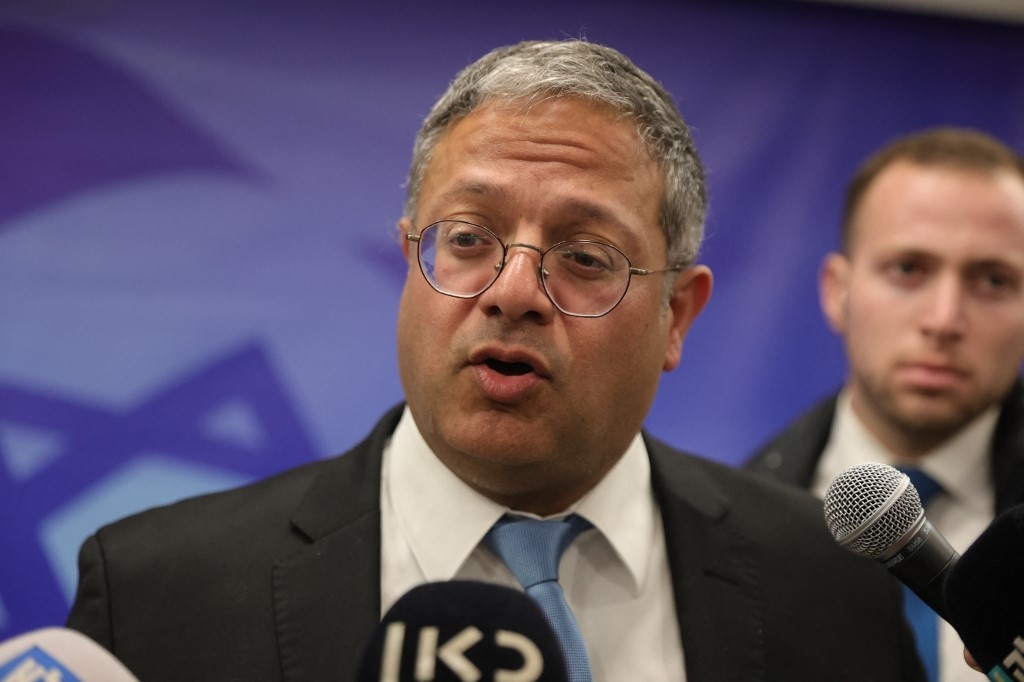
Israel authorised on Sunday the setting up of a national guard under far-right security minister Itamar Ben-Gvir, who has said it would focus on Arab unrest, while political rivals accused him of setting up a sectarian "militia".
The previous government had begun moves to set up an auxiliary police force to tackle internal political violence following pro-Palestinian protests in mixed Jewish-Arab areas during the Gaza Strip war of May 2021. That government fell before the force was finalised.
The exact powers of the new national guard will be discussed by a committee comprised of all Israeli security agencies, which will submit recommendations within 90 days, the prime minister's office said in a statement.
It was not immediately clear who would have direct authority over the national guard.
Israel's police chief, Inspector-General Yaakov Shabtai, has expressed misgivings about the new force in a letter to Ben-Gvir, local media reported.
New MEE newsletter: Jerusalem Dispatch
Sign up to get the latest insights and analysis on Israel-Palestine, alongside Turkey Unpacked and other MEE newsletters
Ben-Gvir, a hardline Jewish settler from the occupied West Bank with past convictions for support for terrorism and incitement against Arabs - who make up 21 per cent of Israel's population - rose in politics partly due to the 2021 unrest.
Having moderated some of his positions, he wields an expanded law-and-order portfolio in Prime Minister Benjamin Netanyahu's religious-nationalist governing coalition.
'Militia'
Ben-Gvir has described the planned national guard in media interviews as an update of the previous government's initiative. Discussing its planned deployments, he named only Arab communities hit by riots or crime, in Israel as well as along the boundaries with the Palestinian West Bank.
"It will deal with this exclusively. The police does not deal exclusively with this. It's busy with a thousand and one things," he told Army Radio.
Arab politicians have denounced the national guard as a "militia" for Ben-Gvir. Other opposition figures have accused Ben-Gvir of wanting a new force to crack down on nationwide demonstrations against the government's judicial overhaul plan.
"Why does the State of Israel - which has an army, police, military intelligence, the Shin Bet, Mossad, National Security Council, Prisons Service, riot police, a SWAT team - need another national guard?" Arab lawmaker Ayman Odeh wrote on Twitter.
Government funding will enable an initial intake of 1,850 personnel for the new force, Ben-Gvir said, adding that these could be seconded police officers and volunteers, including from the Arab sector.
He said that the national guard would take months to get off the ground and that he was trying to fill police posts in parallel.
Israeli police chief Shabtai questioned the need for the national guard and warned that any separation of it from the police hierarchy "could prove most costly and even harm the security of the citizenry", according to the Ynet news site.
Confirming the existence of the letter, Ben-Gvir said he would meet Shabtai on Monday and was open to the possibility of putting the national guard under the command authority of the police "if they're serious and really want it".
Netanyahu in weak position
The plan was part of a deal between Netanyahu and Ben-Gvir, who had threatened to resign after the prime minister paused a controversial plan to overhaul the judiciary following weeks of mass protests that brought the country to a stand-still on Monday.
Ben-Gvir agreed to the delay in return for allowing the creation of a national guard loyal to his ministry.
'Clearly, Netanyahu’s political standing is extremely weak. His polling numbers are at historic lows, and his own party is extremely resentful of him'
- Yonatan Touval, analyst
"Clearly, Netanyahu’s political standing is extremely weak," said Yonatan Touval, an analyst at the Israeli Institute for Regional Foreign Policies (Mitvim), following the decision on the national guard.
"His polling numbers are at historic lows, and his own party is extremely resentful of him," added Touval speaking to Middle East Eye.
Ben-Gvir has long supported the creation of a national guard and wants to "have a paramilitary force directly under his command that he can deploy in mixed Arab-Israeli towns inside Israel," said Touval.
"It goes without saying that the force would focus on enforcing law and order on Arab residents whenever tensions and violence erupt," he added.
Ben-Gvir has already told police to crack down harder on anti-government protests that have rocked the country since January.
'Anti-Palestinian agenda'
The Association for Civil Rights in Israel has said: "We already saw what happened when Ben-Gvir wanted to suppress the protests; now one can only imagine what will happen when he has his own militias."
Palestinian citizens of Israel and those living in the occupied territories are also likely to fear the move, since it could likely be used against them.
"Giving a private militia to Kahanist minister Itamar Ben-Gvir, who is a convicted criminal, is likely to occasion a new low for Palestinian human security across the occupied Palestinian Territories," said Robert Andrews, the public relations officer at the human rights NGO the EuroPal Forum.
Rabbi Meir Kahane was an Israeli-American who led a far-right group that gave rise to Kahanism, an extremist religious Zionist worldview premised on Jewish supremacy.
Ben-Gvir’s Jewish Power party has in the past espoused Kahanist ideology and is an important coalition member in Netanyahu's ruling coalition.
"The decision to award the fascistic Ben-Gvir with a private militia will undoubtedly serve to embolden his clear anti-Palestinian agenda," Andrews told MEE.
In the last few months, Ben-Gvir has already introduced a series of draconian measures against Palestinians.
In February, Israel's parliament passed the first stage of a bill, introduced by the Jewish Power Party, to stop funding non-essential medical treatment for Palestinians in Israeli prisons.
Since joining Netanyahu's government late last year, the security minister has vowed to crack down on the treatment of Palestinian prisoners, whom he claims are being treated too well.
'Legal challenges'
Ben-Gvir has also ordered the closure of Palestinian prisoner-run bakeries in Israeli prisons and that detainees only be given four minutes to shower.
"With a private militia now under his absolute control, it is already clear - as per his statements thus far - that Ben-Gvir will use the group to further legitimise settler violence against Palestinian communities under the guise of ‘protecting law and order'," said Andrews.
"The Hilltop Youth, [an extremist religious-nationalist settler group], already routinely terrorise and attack Palestinian civilians and property with impunity," he added.
"One can expect Ben-Gvir’s militia to continue the acts of violence and terrorism against Palestinians, albeit while wearing uniforms and officially part of the state’s apparatus."
Despite such fears, Touval said that the decision to form the national guard is likely to be fought in the courts and Ben-Gvir’s control over it is still far from assured.
"The establishment of such a force is likely to meet legal challenges, especially if, as the latest plan states, the national guard is to be separate and independent of the police and subject directly to the Ministry of National Security and its minister, Ben-Gvir himself," said Touval.
Middle East Eye delivers independent and unrivalled coverage and analysis of the Middle East, North Africa and beyond. To learn more about republishing this content and the associated fees, please fill out this form. More about MEE can be found here.


